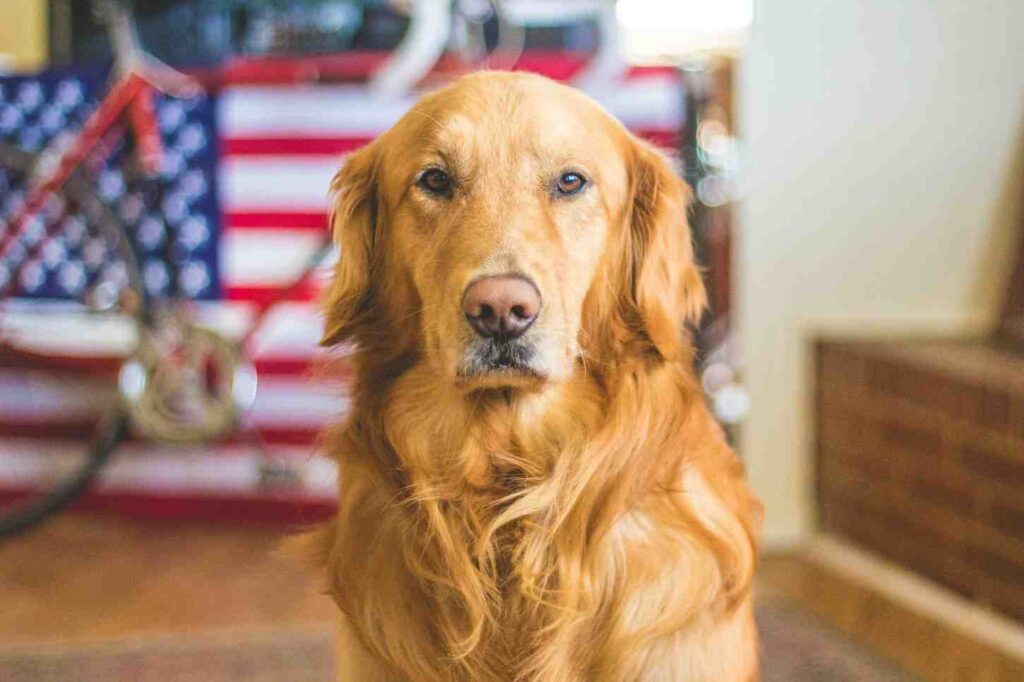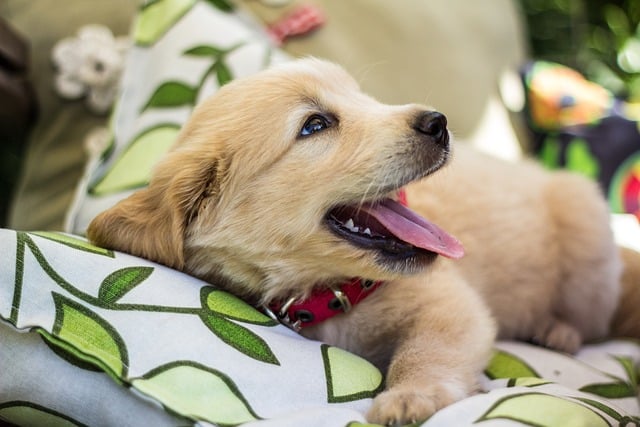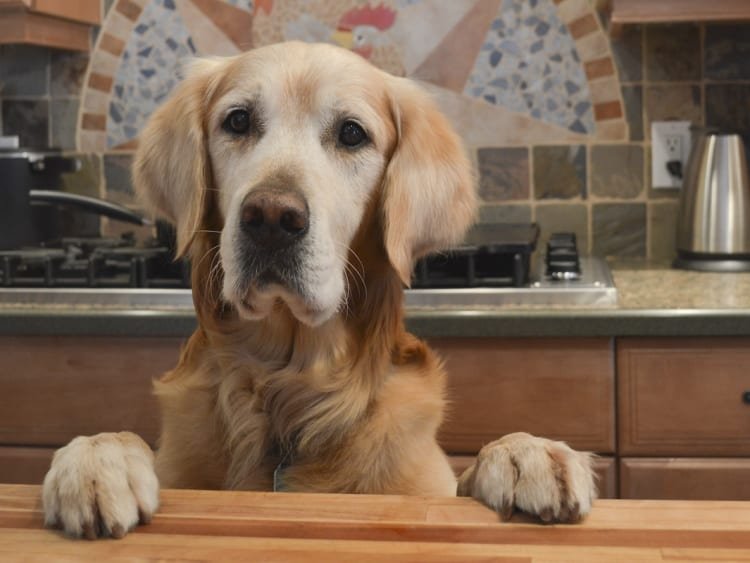Golden Retrievers are amazing dogs: loyal, loving, and full of energy. But if you live in a small home or apartment, you might wonder: Is this the right breed for me? The good news is, with some creativity and care, your Golden Retriever can live happily even in a small space. Let’s explore how to make it work while keeping your furry friend healthy and joyful.
Where’s All This Big Dog Stuff Going to Fit?
Living with a Golden Retriever in a small home doesn’t mean your space has to feel cramped. It’s all about smart organization.
- Create a designated doggy corner. Place their bed in a quiet, cozy spot. Choose a comfortable bed with good padding to protect their joints.
- Use compact storage. Store toys, leashes, and grooming supplies in bins or baskets that fit under furniture or on shelves.
- Keep it simple. Golden Retrievers don’t need fancy setups. They just need a space where they can relax and feel safe.
Small adjustments can make your home feel spacious while giving your dog a comfy spot to call their own.
How Do we Keep our Dog Active Indoors?
Golden Retrievers have a lot of energy, and small spaces don’t naturally invite running around. But don’t worry, you can keep your pup active indoors with a little creativity.

- Play hallway fetch. If you have a hallway or long room, it’s the perfect place for a quick game of fetch.
- Try tug-of-war. Use a sturdy rope toy for a fun game that burns energy.
- Teach new tricks. Spend time training your dog to do tricks like “spin,” “high five,” or “roll over.” It’s a great mental and physical workout.
Indoor activities not only tire them out but also keep their minds sharp. Veterinarians agree that daily exercise helps prevent weight gain and keeps their joints healthy.
What If They Get Bored Without a Yard?
Golden Retrievers are intelligent, and a bored dog can quickly become a mischievous one. If you don’t have a yard, mental stimulation becomes even more important.
- Invest in puzzle toys. Toys that hide treats or require problem-solving are great for keeping your dog entertained.
- Play scent games. Hide treats around your home and let your dog sniff them out.
- Rotate their toys. Keep things interesting by swapping out their toys every few days.
When Golden Retrievers are mentally engaged, they’re happier and less likely to chew furniture or bark excessively. If you’re unsure about which toys to get, a quick chat with your vet can help you pick safe and suitable options.
Related Post: Best Gifts for Golden Retrievers
How Often Should we Take Them Outside?
Without a yard, outdoor time becomes even more important. Golden Retrievers need to stretch their legs, explore, and socialize.
- Aim for at least two walks a day. A morning and evening walk can do wonders for their energy levels.
- Find nearby parks. Local parks or dog-friendly areas can give your Golden Retriever the space to run and play.
- Plan weekend adventures. If possible, take your dog to hiking trails, beaches, or larger parks for a fun day out.
Regular outdoor time isn’t just about exercise, it also gives your dog mental stimulation and a chance to bond with you. Plus, vets recommend outdoor activities to keep their weight in check and their minds engaged.
Also Read: Something Strange is Happening to Golden Retrievers
Is a Small Space Going to Affect Their Health?
You might worry that a small living space could harm your Golden Retriever’s health. The truth is, as long as their needs are met, they can thrive in any environment. Here’s what to watch for:
- Weight management. Golden Retrievers can gain weight easily, especially if they’re not as active. Keep an eye on portion sizes and choose a high-quality dog food.
- Joint health. Because they’re a larger breed, joint problems like hip dysplasia can be a concern. Make sure they have soft bedding and avoid letting them jump on and off furniture too often.
- Routine vet visits. Regular checkups with your vet are essential. A vet can monitor your dog’s weight, joints, and overall health to ensure they’re doing well, even in a small home.

Pro tip: If you ever notice your dog acting differently like limping, being less active, or seeming unhappy, a vet can help figure out if it’s a health issue or just a behavior change.
What About the Barking or Chewing?
In smaller spaces, barking and chewing can become frustrating for both you and your dog. Here’s how to manage these behaviors:
- Keep them busy. A tired dog is a happy dog. Regular exercise and mental stimulation will reduce unwanted behaviors.
- Redirect their energy. If they’re chewing something they shouldn’t, give them a chew toy instead.
- Stick to a routine. Golden Retrievers thrive on consistency. Feeding, walking, and playtime at the same times every day help them feel secure.
If problems persist, consult your vet. Sometimes anxiety or boredom can be behind these behaviors, and a vet can offer helpful advice or refer you to a behaviorist.
You may Interested: English Cream Golden Retriever
How Will We Know If They’re Happy?
The best part about owning a Golden Retriever is how expressive they are. A happy Golden Retriever will:
- Wag their tail enthusiastically.
- Be eager to play and interact with you.
- Relax in their bed or favorite spot when it’s quiet time.
If your dog seems stressed or unhappy, take a step back and evaluate their routine. Are they getting enough exercise? Are they eating a healthy diet? Are you giving them plenty of love and attention?
Remember, regular vet visits can help you catch any potential issues early. Your vet can also reassure you that you’re doing everything right for your furry friend.
Final Thoughts
Golden Retrievers can absolutely thrive in small spaces with the right care and attention. They don’t care how big your home is, they just want to be part of your life. With daily walks, mental stimulation, and a little creativity, you can keep your Golden Retriever happy and healthy, no matter where you live.
Living with a Golden Retriever in a small home is a journey of love, patience, and fun. Take it one day at a time, and enjoy the unbreakable bond you’ll build with your best friend.



